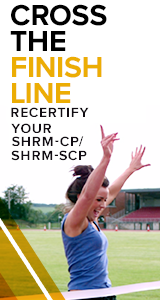Governor Rauner Issues Executive order on IHRC Backlog
To: Members of the Illinois Chamber/ELC Employment Law & Litigation Committee
Yesterday Governor Rauner issued an executive order mandating that steps be taken to eliminate the backlog of over 1,000 cases at the Illinois Human Rights Commission (IHRC) dealing with anti-discrimination and equal opportunity complaints. Executive Order 18-08 (attached) will streamline government services to provide due process for Illinois residents.
In addition to the executive order, Gov. Rauner replaced IHRC Executive Director Keith Chambers with Philip Dalmage to oversee the Commission’s coordination efforts. Dalmage is a former Chief Administrative Law Judge at the Illinois Department of Children and Family Services (IDCFS), and served as the Director of the Business Enterprise Program at the Illinois Department of Human Services (IDHS). Most recently, Dalmage worked as a practicing attorney dealing with civil and family cases, specifically working with IDCFS abuse and neglect cases. He holds a B.A. from Marquette University and a J.D. from the John Marshall Law School.
In 2016, Rauner directed the creation of a Bureau of Administrative Hearings at Central Management Services (CMS) to study the efficiencies the state could realize though consolidation of administrative hearing caseloads. Recognizing that the IHRC has one of the most egregious hearing backlogs in state government, and knowing these hearings affect the state’s most vulnerable populations, in 2017, the governor proposed Executive Order 17-02, the reorganization of IHRC into the Illinois Department of Human Rights (IDHR) to expedite anti-discrimination cases brought by Illinois citizens. The General Assembly rejected the governor’s reorganization executive order later that year.
Nearly every year since 2008, the backlog of cases waiting final decision at IHRC has grown. On average, parties wait more than four years from the time of filing a charge of discrimination until a final decision is reached.
EO18-08 mandates coordination between the Bureau of Administrative Hearings, IHRC, and IDHR to eliminate backlog and improve due process. Coordination includes:
• Within 60 days, creating a plan to eliminate IHRC’s backlog within 18 months.
• Drafting or amending legislation, administrative rules, and internal policies to streamline the transfer and administration of cases between IDHR and IHRC.
• Tracking and transparently reporting on backlogs.
• Developing a shared case management system with the Illinois Department of Innovation and Technology (DoIT).
• Surveying parties appearing before IDHR and IHRC.
• Participating in training, including Rapid Results training.
• An annual report from the Bureau on the success of coordination and other process improvements, to be filed with the governor and the General Assembly.
Our review of EO 18-08 finds that it is compatible with SB 20. However, this may be a signal that a signing of SB 20 may be in jeopardy.
We will discuss the implications of EO 18-08 on our conference call set for July 12th at 10 am. An agenda and meeting details will be provided as we get closer to the 12th.
JAY DEE F. SHATTUCK, CAE
Shattuck & Associates Consulting, Inc.
600 S. Second Street
Suite 403
Springfield, IL 62704
217 . 544 . 5490 o.



.png)



